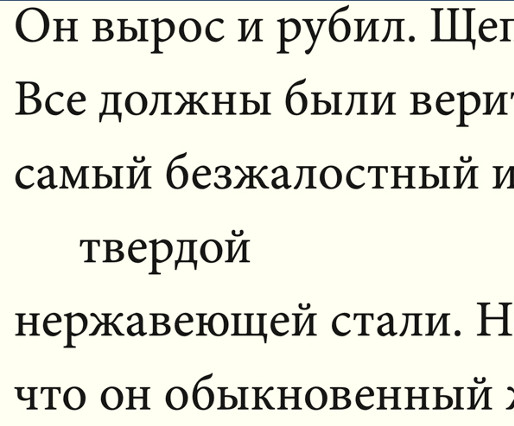
Великий топор
Все знали, что с детства он мечтал стать топором,
бороться с врагами, рубить головы и лес.
Он вырос и рубил. Щепки летели, головы падали.
Все должны были верить: он самый самый острый,
самый безжалостный из всех топоров, он выкован из самый
твердой
нержавеющей стали. Но никто не должен был знать,
что он обыкновенный железный топор.
Он боялся ржавчины. Стоя один перед зеркалом,
он проверял, нет ли на его лезвии
новых красноватых пятен. Он пытался смыть,
скрыть ржавые пятна пятнами свежей крови.
Но ржавчины становилось больше, кровь не смогла ее смыть.
Пока однажды, упавши сквозь зеркало, что он в ярости разбил,
он попал на другую сторону, в зазеркалье,
на опушку леса недалеко от большого болота. И он понял,
что его место там, в болотном озерце, где он потихоньку
снова станет комком темно-бурой болотной руды.
Translation by Sasha Dugdale
English translation directly from the Russian by Sasha Dugdale
Everyone knew that from childhood he had dreamed of becoming an axe
to fight his enemies, to chop off heads and branches.
He grew up and chopped – and splinters flew, heads fell
and everyone had to believe: that he was sharpest of all
the most pitiless of all axes, cast from the toughest steel
that would never rust. But no one must ever know that
he was a normal iron axe.
He was afraid of rust. Standing alone before the mirror
he would check, were those new reddish stains
on his blade? He tried to wash them away
to cover the rust stains with the stain of fresh blood
but the rust grew, the blood could not cover it.
Until one day, he smashed the mirror in anger, fell through it,
and found himself on the other side of the looking-glass
on the edge of a forest near a large swamp. And realised
that his place was there, in the swamp’s pool, where he
could be transformed back into a fist of mud-brown bog ore.
